Prescription for a healthy waistline: sleep
- 6 May 2020
Part 2/2 Diet and Sleep Do you find yourself craving crisps, cake or chocolate when you’re tired, and your waistline expanding after many sleepless […]
At some point most of us resolve to lose weight and adjust our diet. But before we set out on a new diet with renewed resolve, it is important to realise how our diet affects our sleep and vice versa. In the first of a two part blog on sleep and diet, Julianna Photopoulos explores the way the food choices we make affect our sleep.
A survey revealed it takes at least three nights to return to a normal sleep routine after a holiday.1 Drinking alcohol and overeating high-calorie foods in the evening can turn your sleep pattern upside down. And poor sleep affects our food choices 2, while what and when we eat affects our sleep – it’s a vicious cycle. Fortunately, there are several that foods may help, thanks to their nutrient-rich, waist-friendly, and sleep-regulating properties.
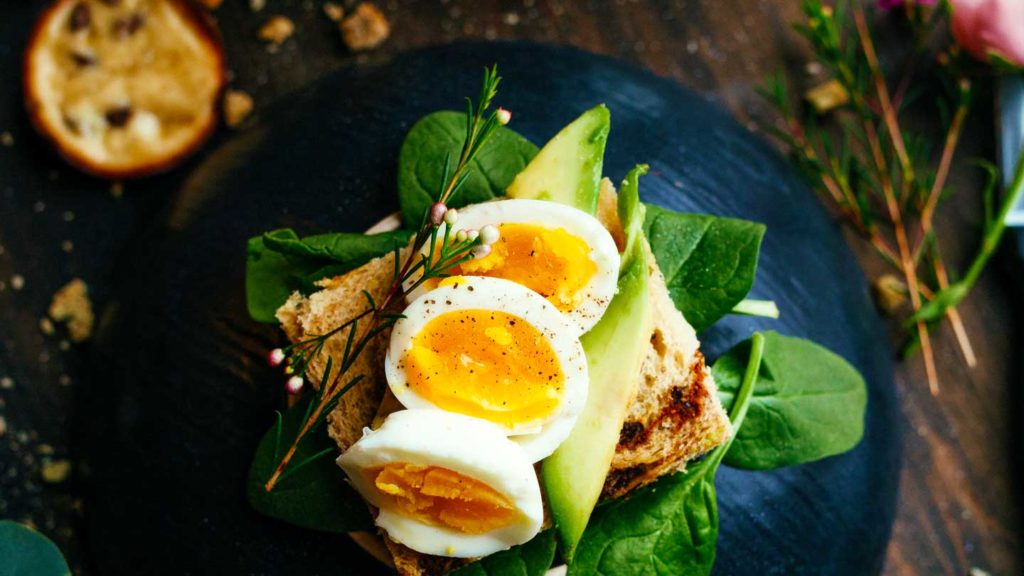
Eating foods high in magnesium relaxes your muscles and could improve sleep – especially for those who have insomnia.3 4 5 Magnesium-rich foods include bananas, avocados, spinach, nuts and seeds like almonds, beans, and whole grains.6 7 Almonds are specifically recommended as an afternoon snack because of their extra benefit of protein, which helps stabilise our blood sugar levels while asleep and switches our bodies from being alert to a ‘rest-and-digest’ mode. Read our Top 10 Sleep Snack Hacks.8
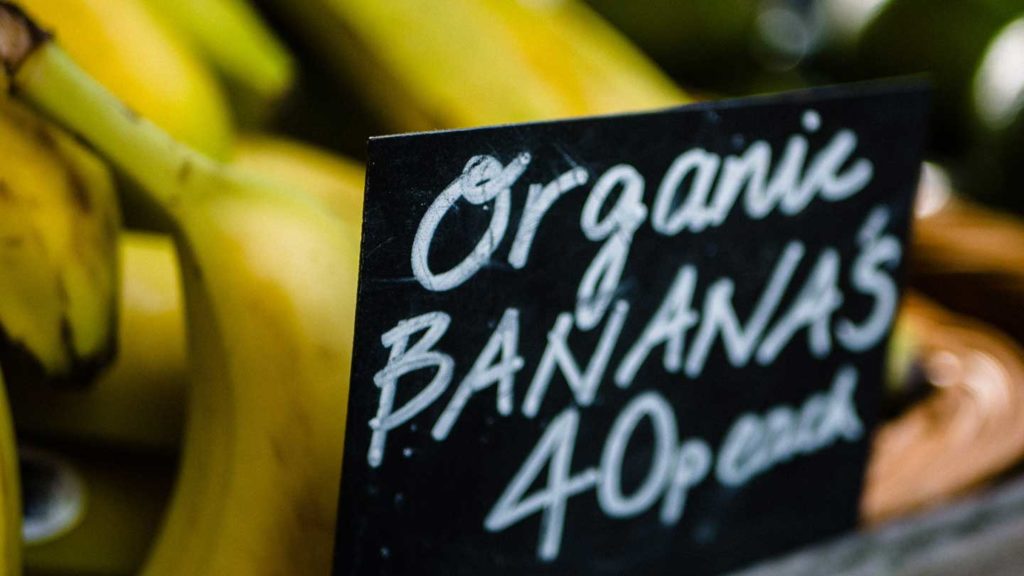
Bananas are also an excellent source of potassium which helps overstressed muscles relax, making them ideal as a snack before bed. Besides, they contain the amino acid tryptophan that boosts sleep-inducing hormones serotonin and melatonin levels9 in the brain.10 11 12 Tryptophan, found to improve insomnia symptoms13, is also present in yoghurt, milk, oats, dates, poultry, eggs, peanuts, and in smaller amounts in most protein foods.14 But for tryptophan to be effective, studies suggest combining it with carbohydrates to increase its availability in the bloodstream and help it reach our brains.15 16
Tryptophan, found to improve insomnia, is present in yoghurt, milk, oats, dates, poultry, eggs, peanuts.
Calcium, like magnesium and potassium, has sleep-promoting properties.17 It helps produce the ‘sleep hormone’ melatonin that regulates our sleep cycles: at night its levels rise to promote sleep, whilst levels are suppressed during the day to keep us awake and alert.18 Dairy products are rich in calcium, making a glass of warm milk a great bedtime drink!19
Another important nutrient that seems to affect sleep – and our dreams and mood – is vitamin B6, found in most fish, chickpeas and potatoes.20 Again, this vitamin encourages serotonin and melatonin to be produced. A lack of B6 has been linked to insomnia and depression. Other vitamins important for sound sleep are D, E, C and B12.21
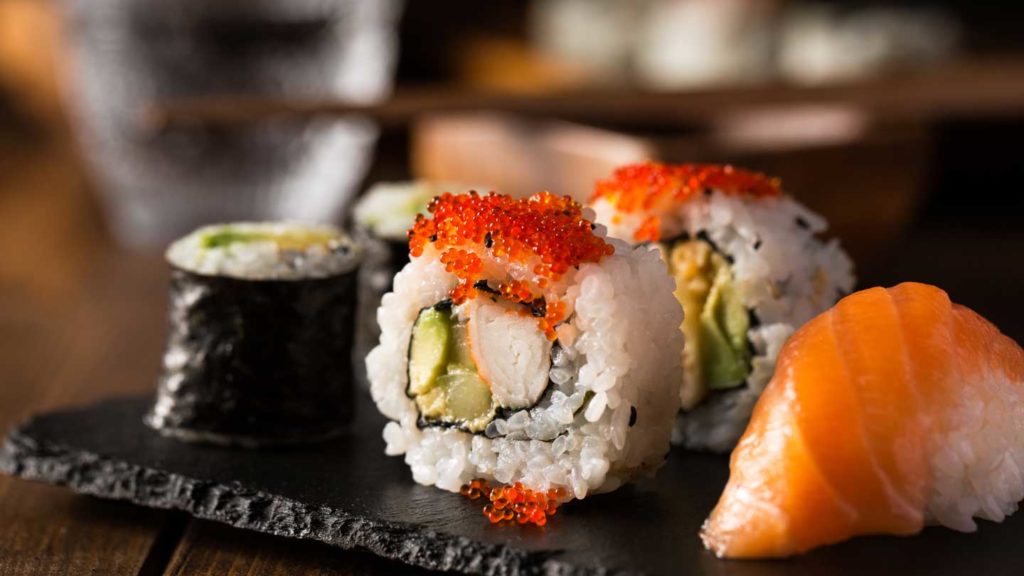
How much fruit and veg we eat has been linked to how long we sleep.22 A recent study found that long sleepers ate 28g less fruit and veg per day compared to those who got seven to eight hours of sleep a night, whilst short sleepers ate 24g less a day.23 So it’s important to get the right amount of sleep! Other research suggests eating a more plant-based diet to feel less tired, as opposed to foods with saturated fat and sugars.24 25
Sugary, fat-laden and high-calorie foods impact our brain and body’s appetite-regulating hormones, stimulating our appetite and cravings26 – and expanding our waistline. A study found that those who consumed more sugary foods not only struggled to fall asleep but also had more restless, disrupted nights and spent less time in slow-wave sleep.27 This stage in our sleep cycle, also known as deep sleep, is key for our brain’s function and memory, and it’s when we get our most restorative sleep.28 A well-balanced diet rich in fresh fruits and vegetables, low-fat protein and whole grains is fundamental to a good night’s sleep.29
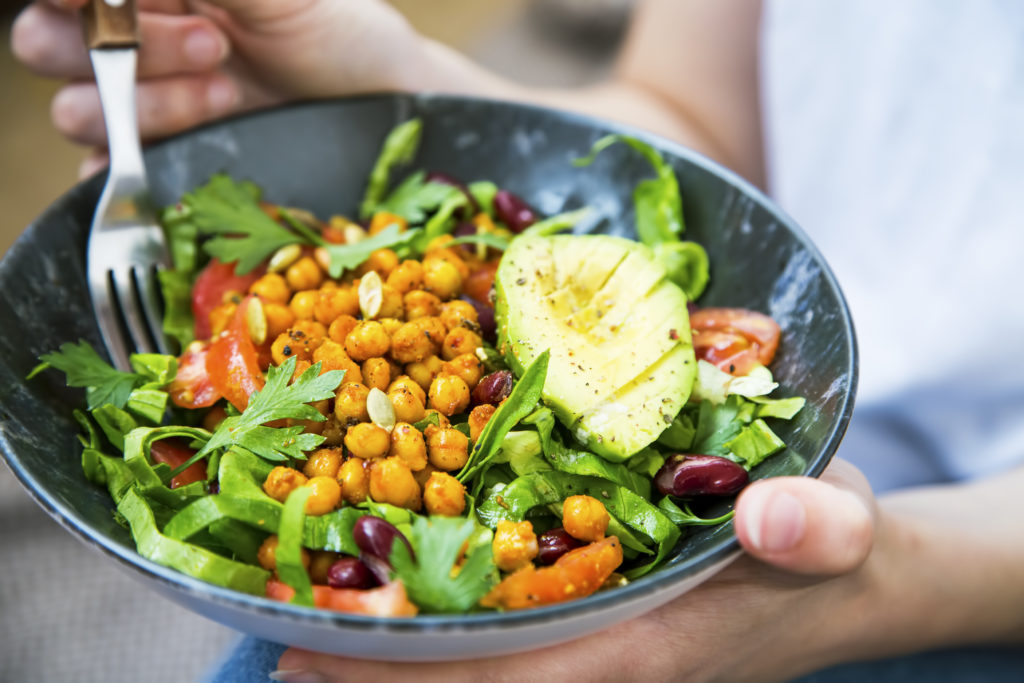
When you eat is also important as it affects your internal body clock. For instance, people who eat more of their daily calories at night can disrupt their sleep cycles and gain weight.30 Experts advise to avoid certain foods and drinks close to bedtime, such as alcohol, caffeine and heavy foods. 31 32 33
Experts advise to avoid certain foods and drinks close to bedtime, such as alcohol, caffeine and heavy foods.
While it may help you fall asleep faster because of its sedative effect, alcohol significantly reduces your rapid eye movement (REM) sleep (associated with dreaming) and keeps you in the lighter stages of sleep.34 This fragments your sleep, making you feel unrefreshed and unrestored in the morning.
Caffeine – included in fizzy drinks, coffee, tea, and chocolate – can also reduce your sleep.35 It blocks the sleep-regulating hormone adenosine which builds up throughout the day and stops the ‘sleepiness’ signal from getting to your brain. And remember: caffeine has a half-life of six hours, which means it stays in your system for a long time!36
The influence these foods have on sleep is promising, yet more studies are needed to help us understand their effects.37 38 39 That said, if you manage to keep a healthy diet while getting enough sleep, not only are you more likely to curb your cravings and make better, healthier choices in general, you keep a trimmer waistline too.40 To find out more read part 2 Prescription for a healthy waistline: sleep.
Julianna Photopoulos is a freelance science journalist who writes for a number of outlets, including New Scientist, Chemistry World, Nature, and Horizon magazine. As a night owl, she loves burning the midnight oil.
Footnotes
1 Average person takes three days to return to normal sleep routine after holiday – The Independent
2 See part 2: Prescription for a healthy waistline: sleep
3 Strategies of Functional Foods Promote Sleep in Human Being – Current Signal Transduction Therapy
4 The Magic of Magnesium – IJPC
5 The effect of magnesium supplementation on primary insomnia in elderly – Journal of Research in Medical Sciences
6 Cooking Up a Sleep Friendly Diet – HUFFPOST
7 Why do we need magnesium? – Medical News Today
8 Foods that help you sleep – The Sleep Council
9 Melatonin and Sleep – The Sleep Council
10 Cooking Up A Sleep-Friendly Diet – HUFFPOST
11 Foods that help you sleep – The Sleep Council
12 L-Tryptophan: Basic Metabolic Functions, Behavioral Research and Therapeutic Indications – International Journal of Tryptophan Research
13 Protein source tryptophan versus pharmaceutical grade tryptophan as an efficacious treatment for chronic insomnia – Nutritional Neuroscience
14 What should I eat for a good night’s sleep? – BBC Food
15 Foods that help you sleep – The Sleep Council
16 Food and Sleep – The Sleep Foundation
17 Diet promotes sleep duration and quality – Nutrition Research
18 Dietary Sources and Bioactivities of Melatonin – Nutrients
19 Effects of Diet on Sleep Quality – Advances in Nutrition
20 The Right and Wrong Food for Good Sleep – The Sleep Council
21 5 Vitamin Deficiencies that Can Affect Your Sleep – The Sleep Doctor
22 Sleep deficiency may be due to a lack of fruits and vegetables in your diet – Medical New Bulletin
23 The relationship between sleep duration and fruit/vegetable intakes in UK adults – Epidemiology Research
24 Associations Between Dietary Patterns and Sleep-Related Impairment in a Cohort of Community Physicians – American Journal of Lifestyle Medicine
25 Fiber and Saturated Fat Are Associated with Sleep Arousals and Slow Wave Sleep – Journal of Clinical Sleep Medicine
26 How Sugar and Fat Trick the Brain into Wanting More Food – Scientific American
27 Fiber and Saturated Fat Are Associated with Sleep Arousals and Slow Wave Sleep – Journal of Clinical Sleep Medicine
28 What to know about deep sleep – Medical News Today
29 Eat to Sleep Better in the New Year – Sleep.org
30 How to Lose Weight While You Sleep – The Sleep Doctor
31 Food and Sleep – The Sleep Foundation
32 THE RIGHT AND WRONG FOOD FOR GOOD SLEEP – The Sleep Council
33 Matthew Walker – 12 Tips for Good Sleep – Fast Life Hacks
34 Alcohol and Sleep I: Effects on Normal Sleep – Research Society on Alcoholism
35 The penetrating effects of poor sleep from metabolism to performance to genetics, and the impact of caffeine, alcohol, THC, and CBD on sleep – Peter Attia MD
36 Sleep is your Superpower – Matt Walker TED Talk
37 Waking up to the health benefits of sleep – RSPH (PDF)
38 Does what you eat matter to your sleep? – The Sleep Doctor
39 Effects of Diet on Sleep Quality – Advances in Nutrition
40 To fight effects of sleep deprivation, reach for healthy snacks – Stanford Medicine
By submitting this form you agree to receive our newsletter and marketing offers from Owl + Lark.
© Owl + Lark Limited 2022
Winterman House, 11 Old’s Approach, Tolpits Lane, Watford, WD18 9QY | Company number 12398178